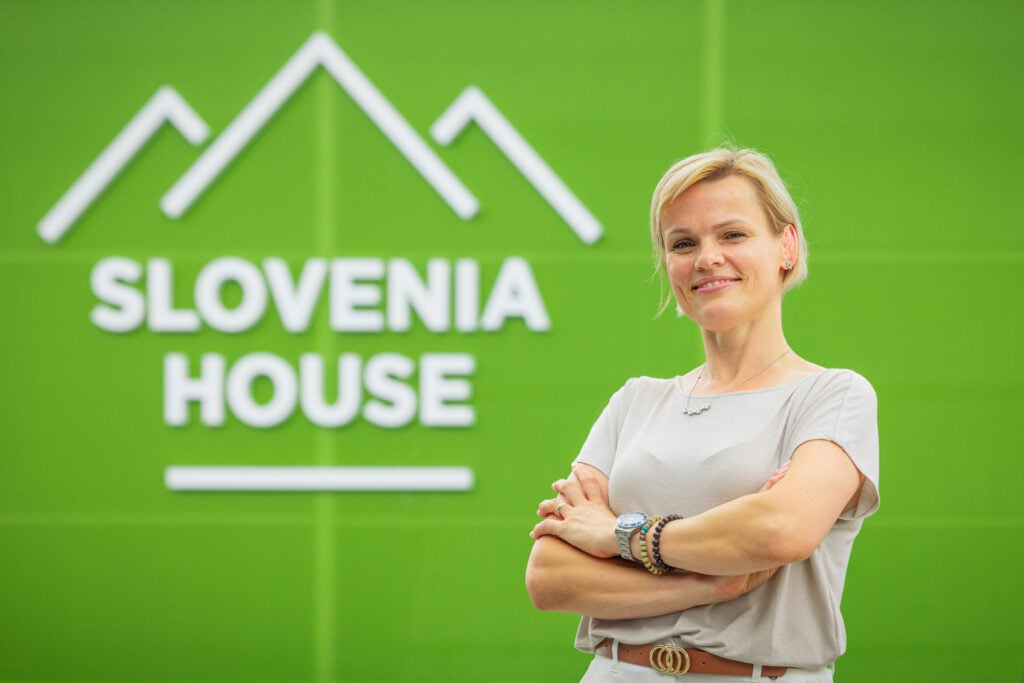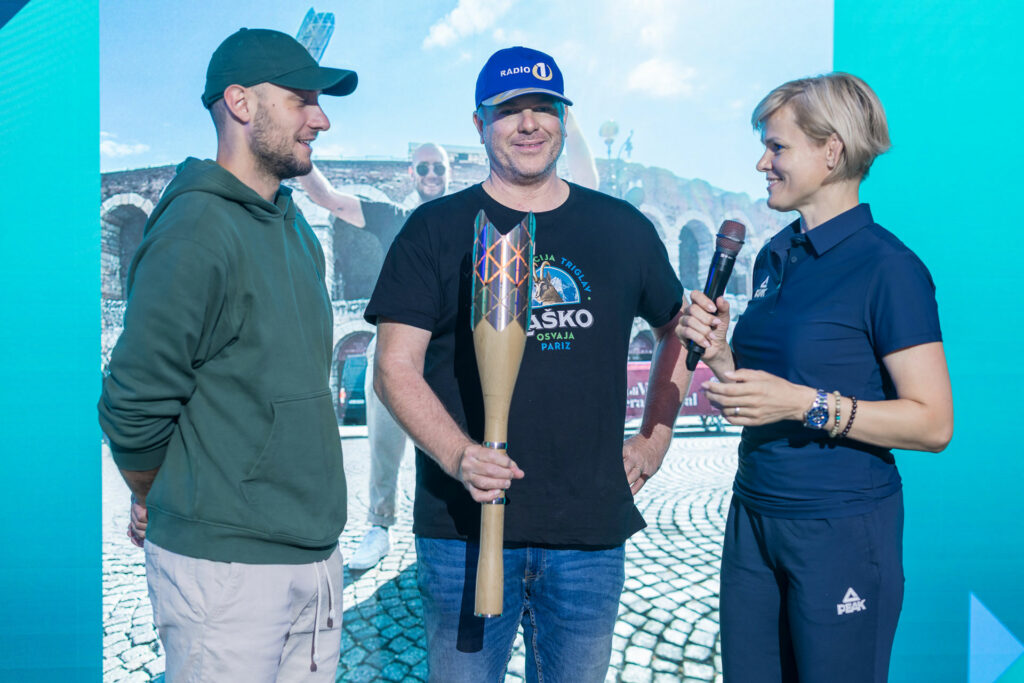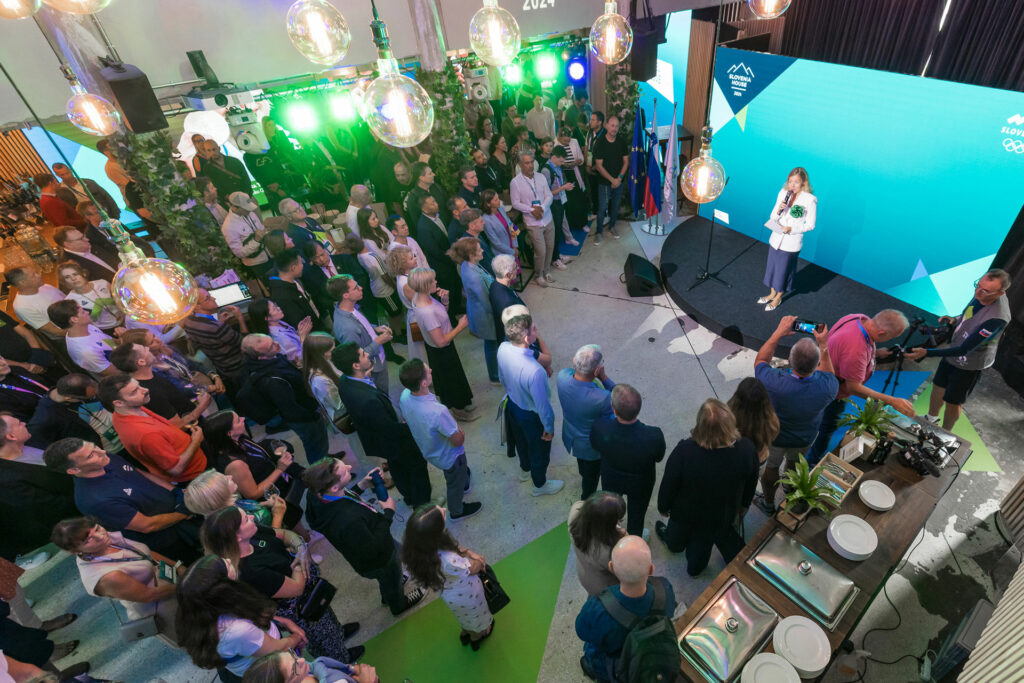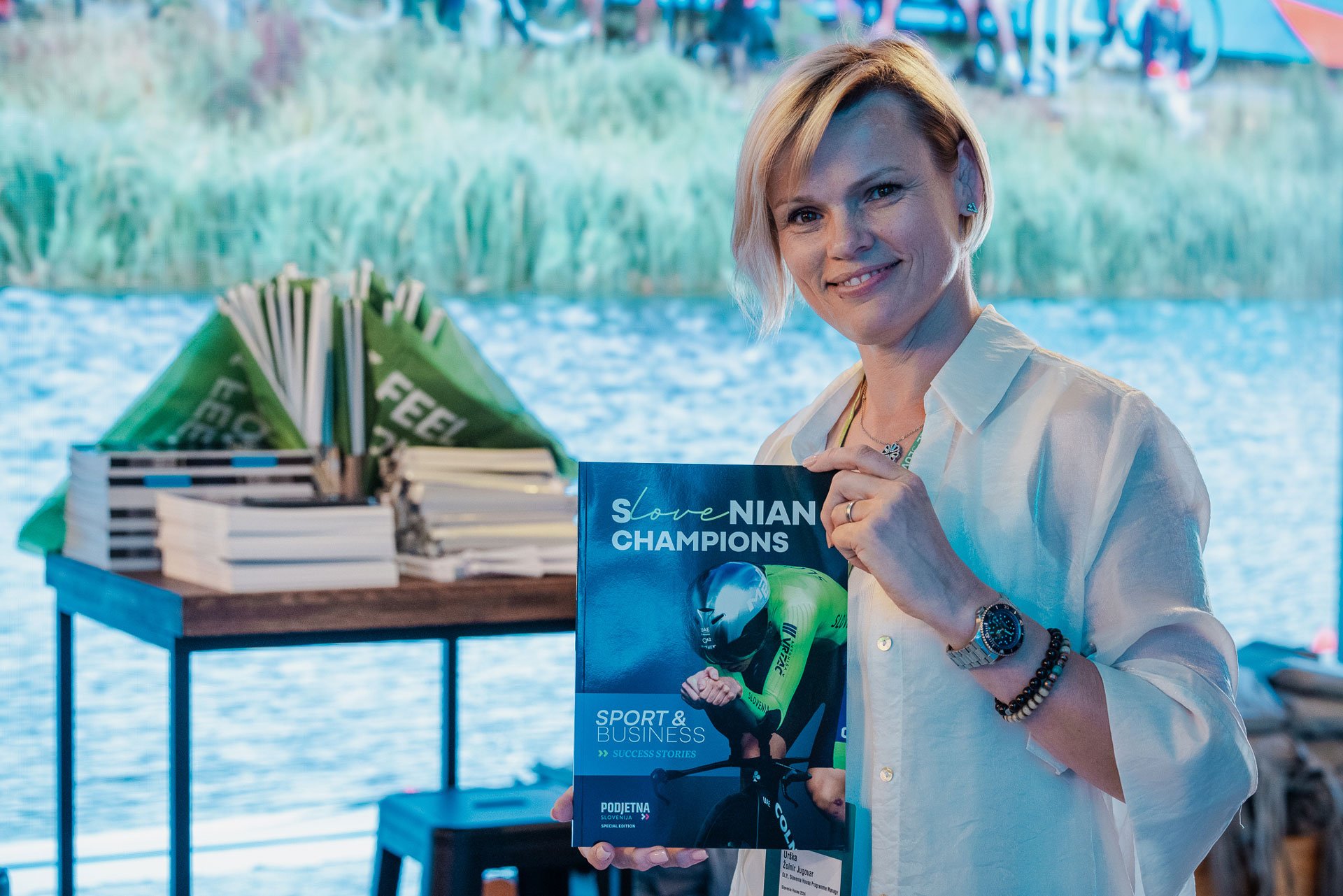It was an eventful summer for Urska ZOLNIR JUGOVAR: the EJU Sport Director has been working for the Slovenian Olympic Committee since the beginning of the year, more precisely in the marketing department. At the Olympic Games in Paris, she was responsible for the programme at the Slovenian Hospitality House. It was the third different role for the London Olympic champion at her fifth Summer Games. After the European Judo Championships Juniors in Tallinn, Urska Zolnir Jugovar took the time for an in-depth interview about Olympic experiences, new tasks and family challenges.
Your Olympic career began in 2004 as a wildcard athlete who won bronze on her debut. In Beijing, four years later, you came seventh. The crowning glory came in 2012 with the first judo Olympic gold for Slovenia. What characterised the athlete Urska Zolnir Jugovar?
Urska Zolnir Jugovar: “As an athlete, you are completely focused on yourself. You’re the centre of attention, everything revolves around you or judo. You train, eat, sleep, train and so on. It was clear to me from the start: you can’t afford to make any more mistakes in the last two weeks before day X, especially not in the last week. You force yourself to pay attention to everything, in training, when eating… Nothing happens by chance anymore.”
When you won the Olympics in 2012 at your third attempt – what was different? Was the pressure greater than usual?
Zolnir Jugovar: “In 2012, I was clearly at the peak of my career. That was the best Urska of all time. I literally destroyed my randori opponents in training. But I wasn’t thinking about a medal or even the Olympic title. My mission was to get as fit as possible and stay healthy in the last year before the Games. Yes, the pressure was there. But I had done everything right over the last year. The competition day went to my liking right from the start, it was the best day of my life as an athlete. I enjoyed every minute… Especially the award ceremony.”
You were already involved as a coach during your active career and then worked with the men’s national team after your active career. Your protégé Adrijan Gomboc (-66) finished fifth in Rio in 2016. How difficult was it to gain a foothold as a coach? How do you rate Adrijan’s 5th place?
Zolnir Jugovar: “As an athlete, I had more than twenty years – in the end, all the hard, consistent work paid off. As a coach, I knew from the outset. Adrijan, Rok, Miha and I only have one Olympic cycle. It was agreed from the start that I would stop after Rio, because I wanted to start a family and graduate. It was a big change: suddenly you’re no longer the centre of attention, but your athlete is. And you have to take care of an incredible number of areas. I’ve become a very close observer over the years. I have learnt to register every detail. And honestly, the coaching job is completely underestimated. It’s a tough job, seven days a week, 24 hours a day. It’s difficult to organise a private life alongside it. I take my hat off to all top coaches. Nevertheless, I am very grateful to have had this experience. This is now also helping me at the EJU and the National Olympic Committee.”
Keyword: Slovenian Olympic Committee. In January you started your marketing job, in the summer in Paris you were responsible for the programme in the Slovenian House, received President Natasa Pirc Muzar and Prime Minister Robert Golob and helped organise Andreja Leski’s victory ceremony. It was your third different role at your fifth Games. How challenging was it to be away from your family for three weeks?
Zolnir Jugovar: “It was a completely new experience again. My day started at 6am and I was at Slovenian House from 8.30am. The house opened at 10 a.m. I never actually left before 11 p.m. And the work didn’t always end there. The big challenge was that the Slovenian House 2024 project was much bigger and more ambitious than the previous years. In other words, I couldn’t have imagined the enormity of the project ahead of me. I had been used to being a lone fighter since childhood. Now I had to work in a team and coordinate a variety of areas. My experience in this area was limited and the preparation time of six months was very short. My five-year-old daughter Nola and husband Matej also wanted my attention. They were in Paris for six days during the Games. I wanted them to see what Mum was doing… And there was also time for Euro Disneyland.”
Who took over your job for the competition day of Andreja Leski? How did you experience her Olympic victory?
Zolnir Jugovar: “The Olympic Committee offered me the chance to go to the Champs de Mars arena. But I didn’t have to think about it for long. I stayed in the Slovenian House. It wouldn’t have been right. My job was to run the programme in-house. I didn’t want to let the others down. I wouldn’t have had a quiet minute in the hall and wouldn’t have been able to concentrate on judo. Of course I was cheering Andreja on and watching her fights on TV. But my attention was focussed on the Slovenian House. I wanted to do my job perfectly. That was more important to me. I hope that doesn’t come across as strange… I love judo, I was very happy for Andreja. We’ve now won at least one medal in six Games in a row. Not many countries can say that.”
As a programme manager, did it help you to be the judo Olympic champion Urska Zolnir Jugovar that everyone knows?
Zolnir Jugovar: “Fortunately, I’m not shy, I’m not afraid of contact and I know how to deal with athletes and coaches. But admittedly, of course it helps in certain situations when it comes to liaising with various agencies and ministries. Maybe also when you have to listen and follow orders. On the other hand, in the end it’s your performance that counts.”
What are your personal feelings about Paris? This time, you could not focus on the ranking… How do you personally rate your own work?
Zolnir Jugovar: “We had a total of more than 1,500 guests within two weeks, from the President to the Prime Minister and various IOC members. It was particularly important to us that each of our 90 Slovenian athletes was in the house and was honoured accordingly. 30 employees did a great job at Slovenian House. The feedback was excellent. My bosses are happy and so am I. The atmosphere was great, both among the guests and internally.”
And your family – how did they take to your Olympic adventure?
Zolnir Jugovar: “Of course there were some specially tough days. One Monday, I couldn’t get through to my daughter or my husband for a while. Not everything went according to plan in Paris either. I had to calm down for a moment. But in general, we worked really well as a family. My husband and daughter were understanding. I’m really proud and happy. And the day at Disneyland was a reward for everyone, including me. Incidentally, I also met some international judoka there. They were already off at the time.”
How important is the job at the National Olympic Committee to you?
Zolnir Jugovar: “The job is exciting, I enjoy it and it gives me and my family the security we need. I’ve come to stay longer.”
How much room is there for judo and the EJU?
Zolnir Jugovar: “Judo and the EJU are my second family. It’s my big hobby, my vocation. I’m happy to be able to give something back to the sport. And I look forward to every assignment. Tallinn, the European Under-21 Championships, was a complete success, both in sporting and organisational terms.”



Author: EJU Media




